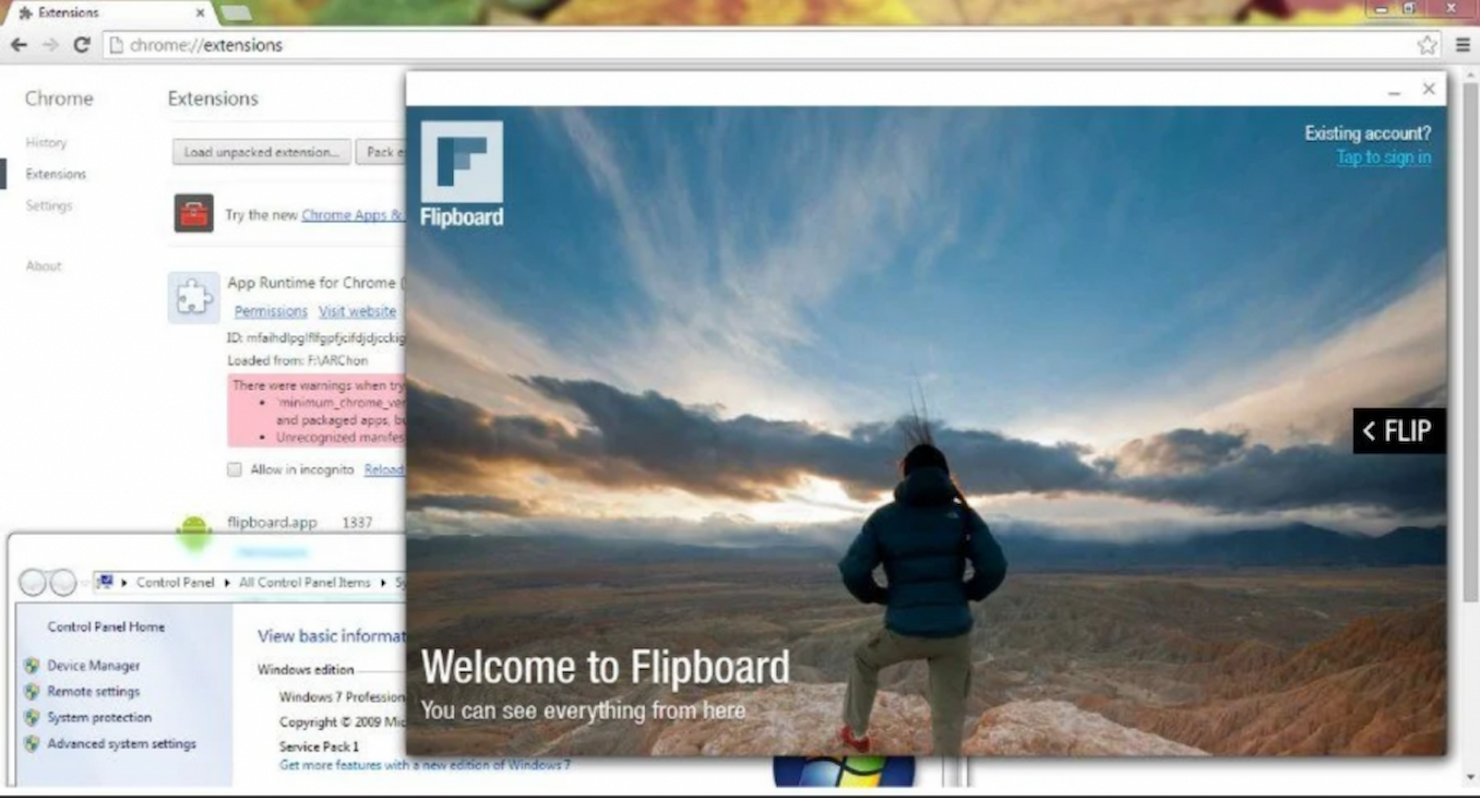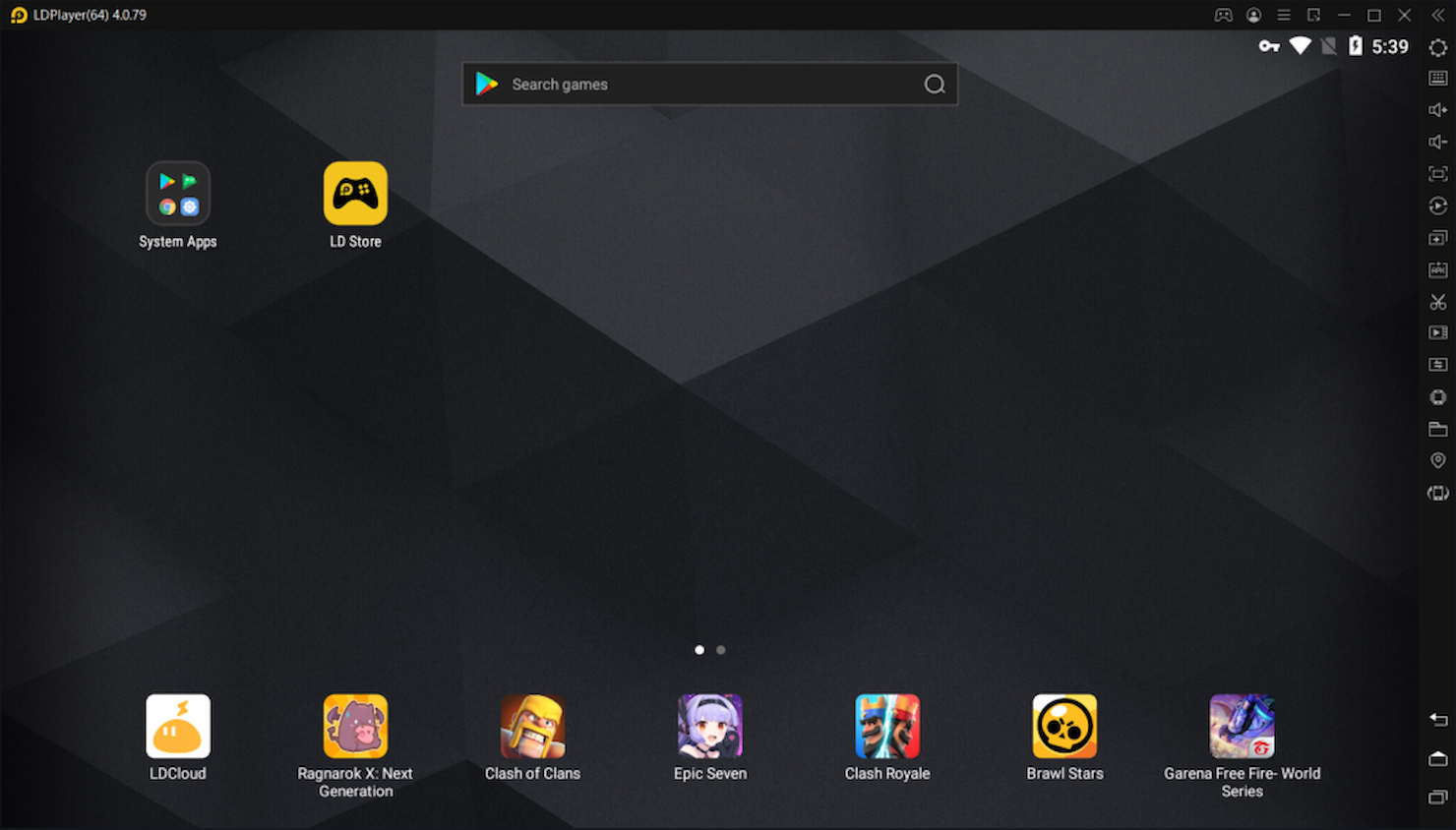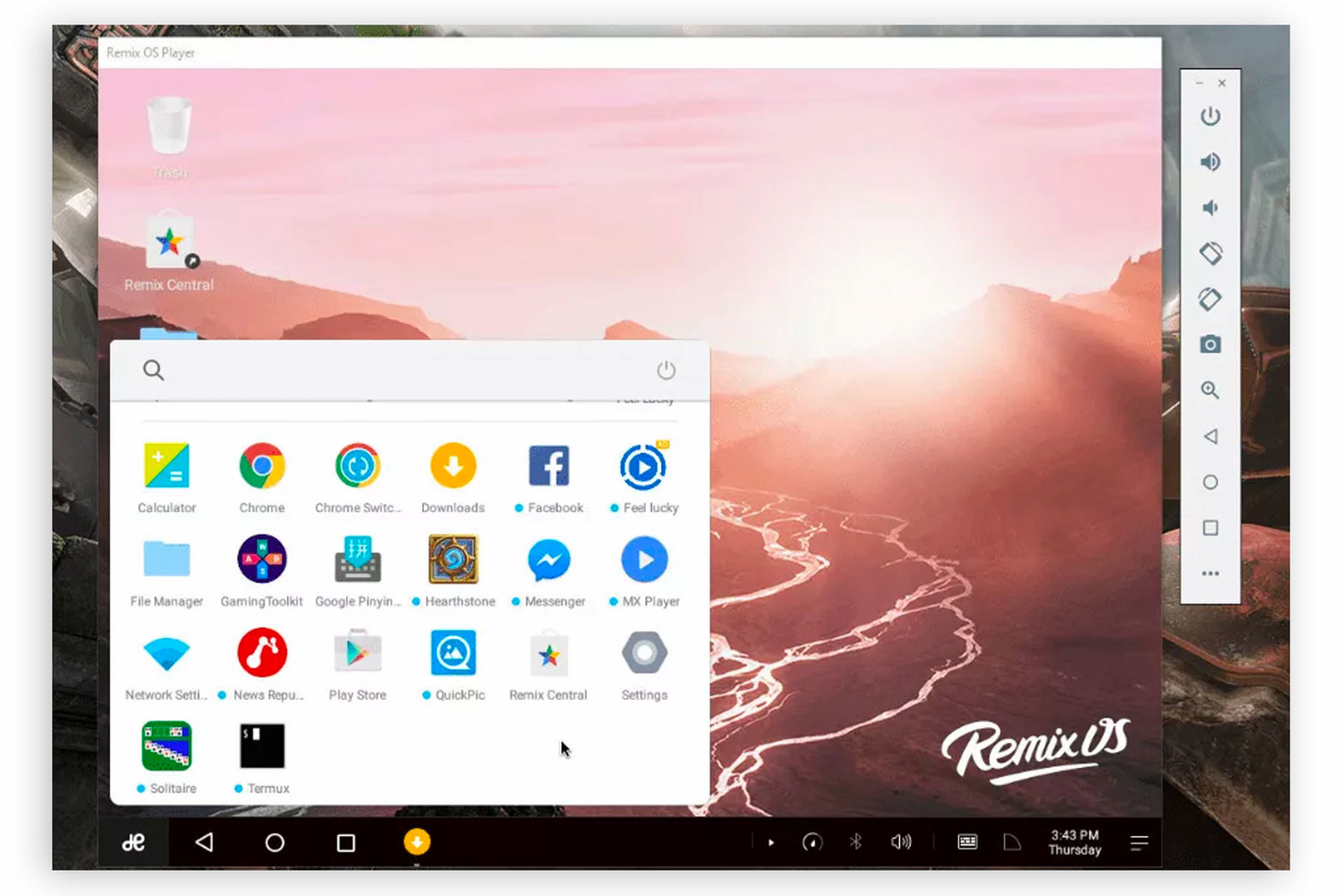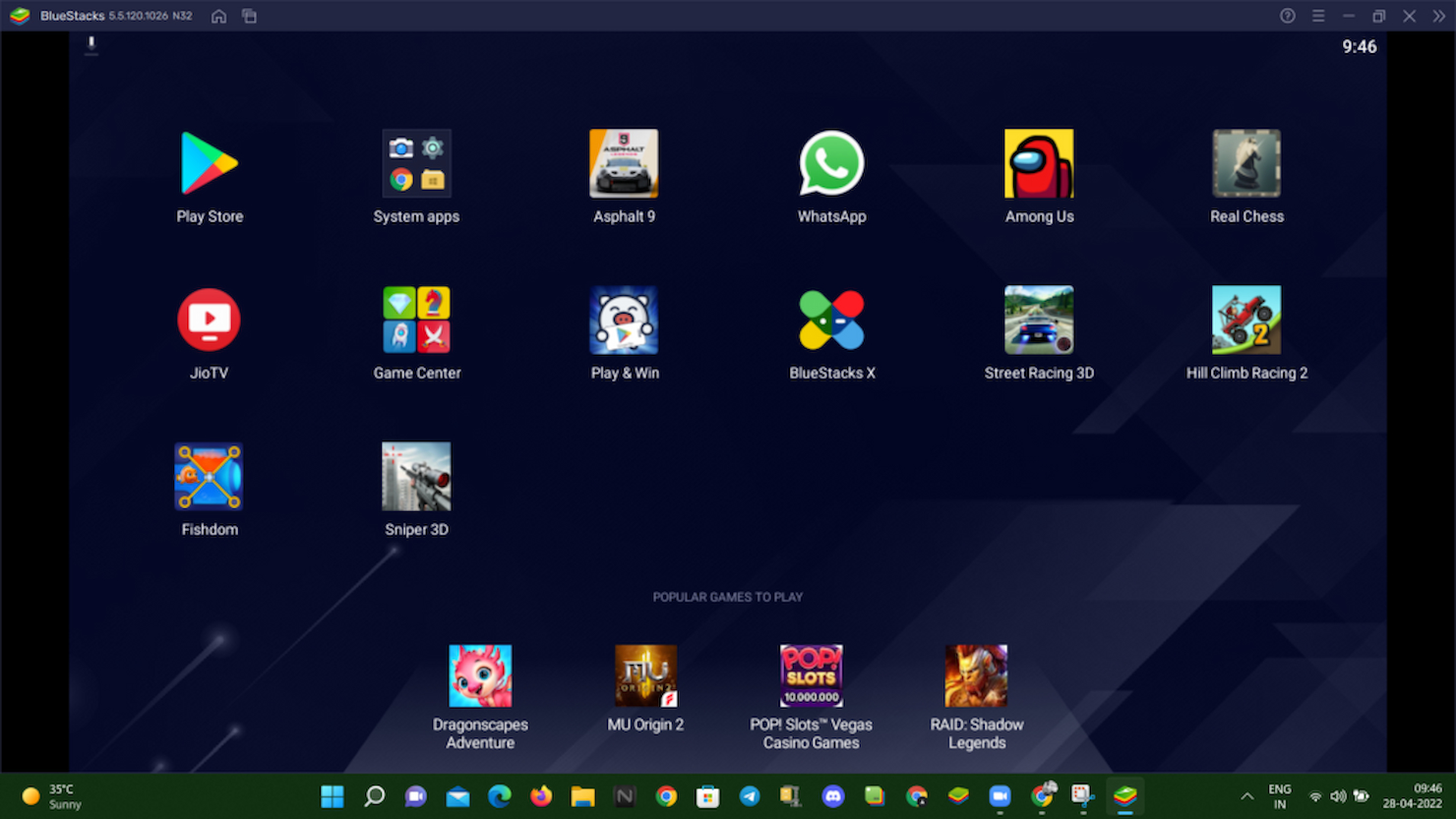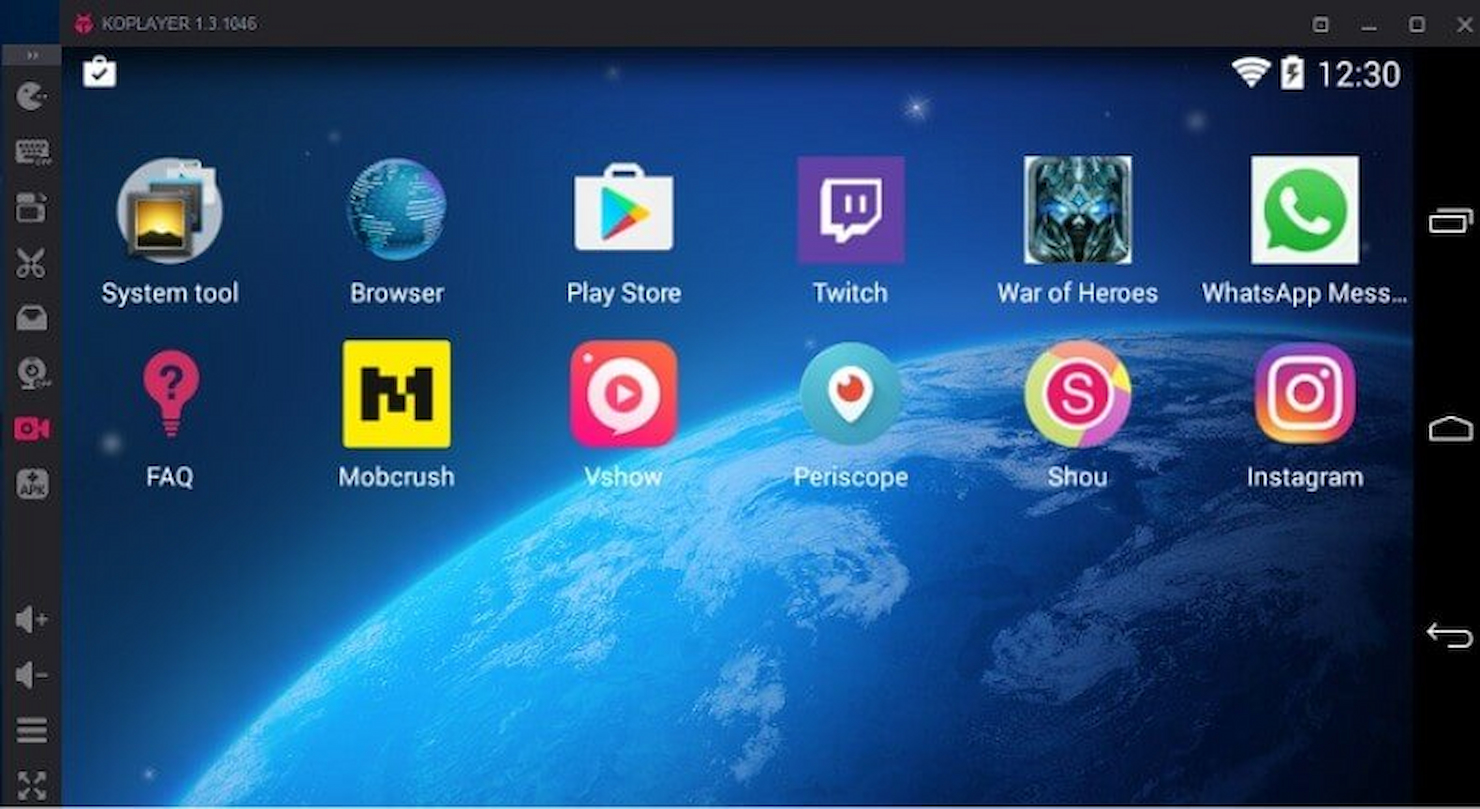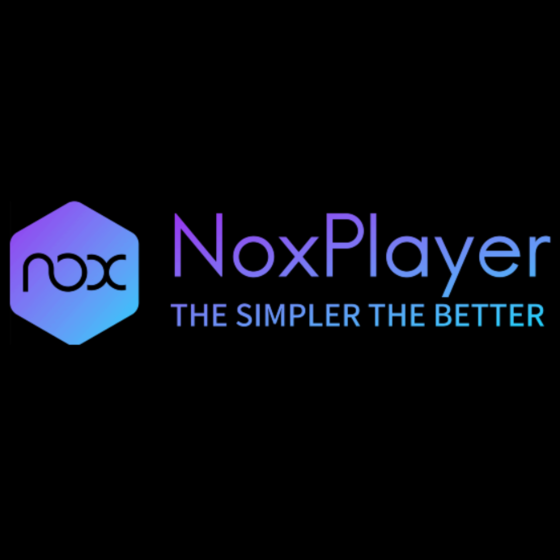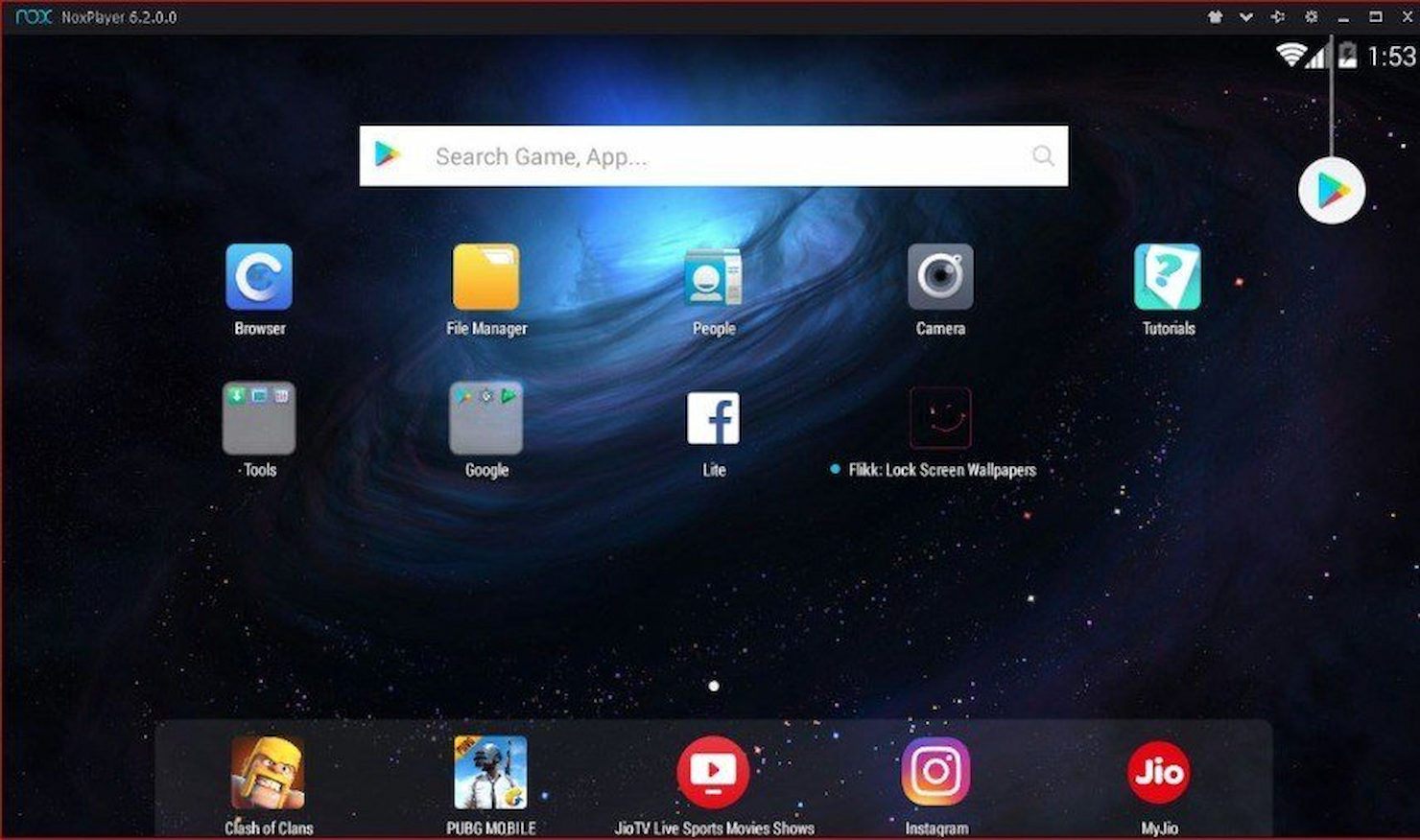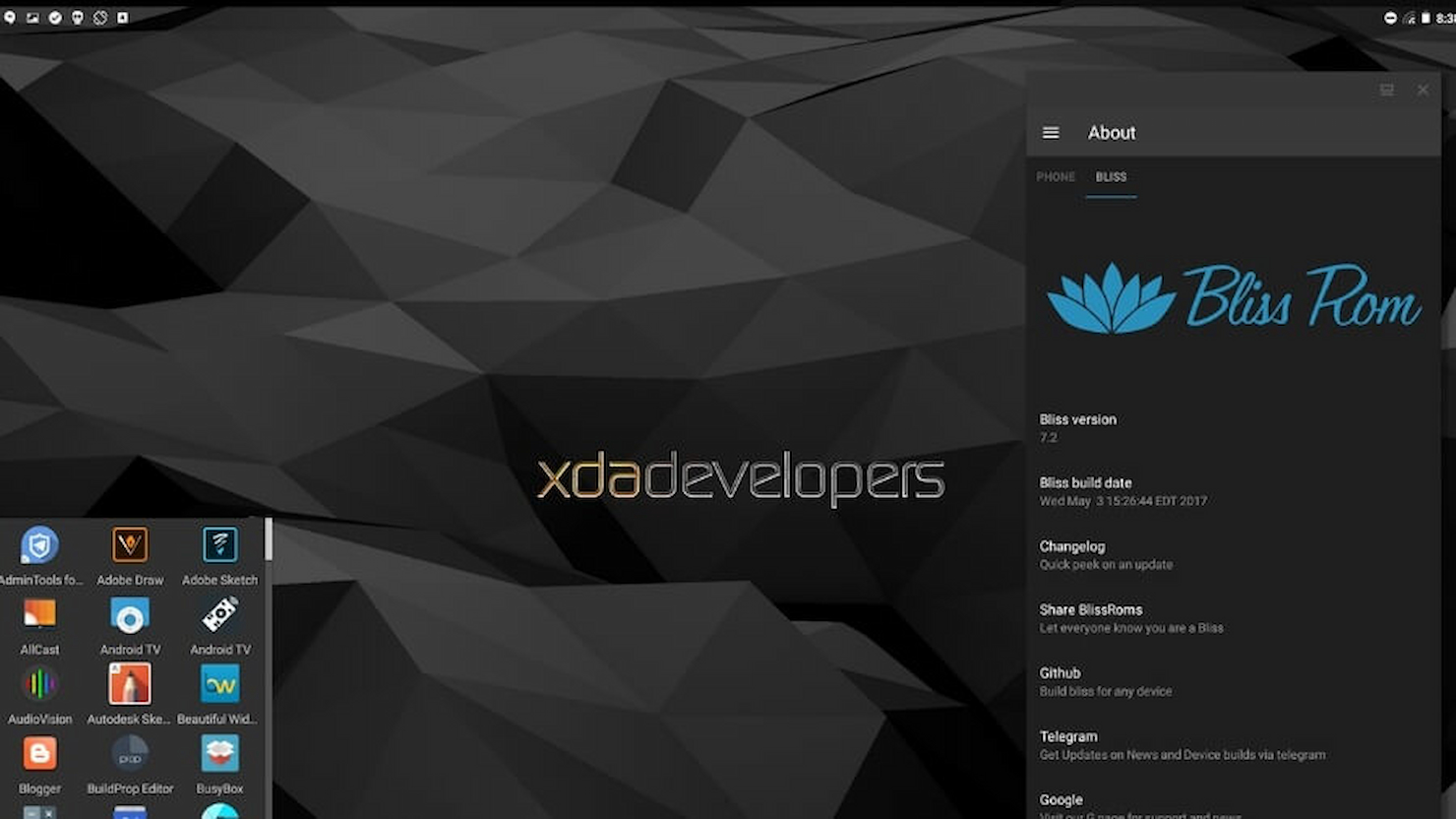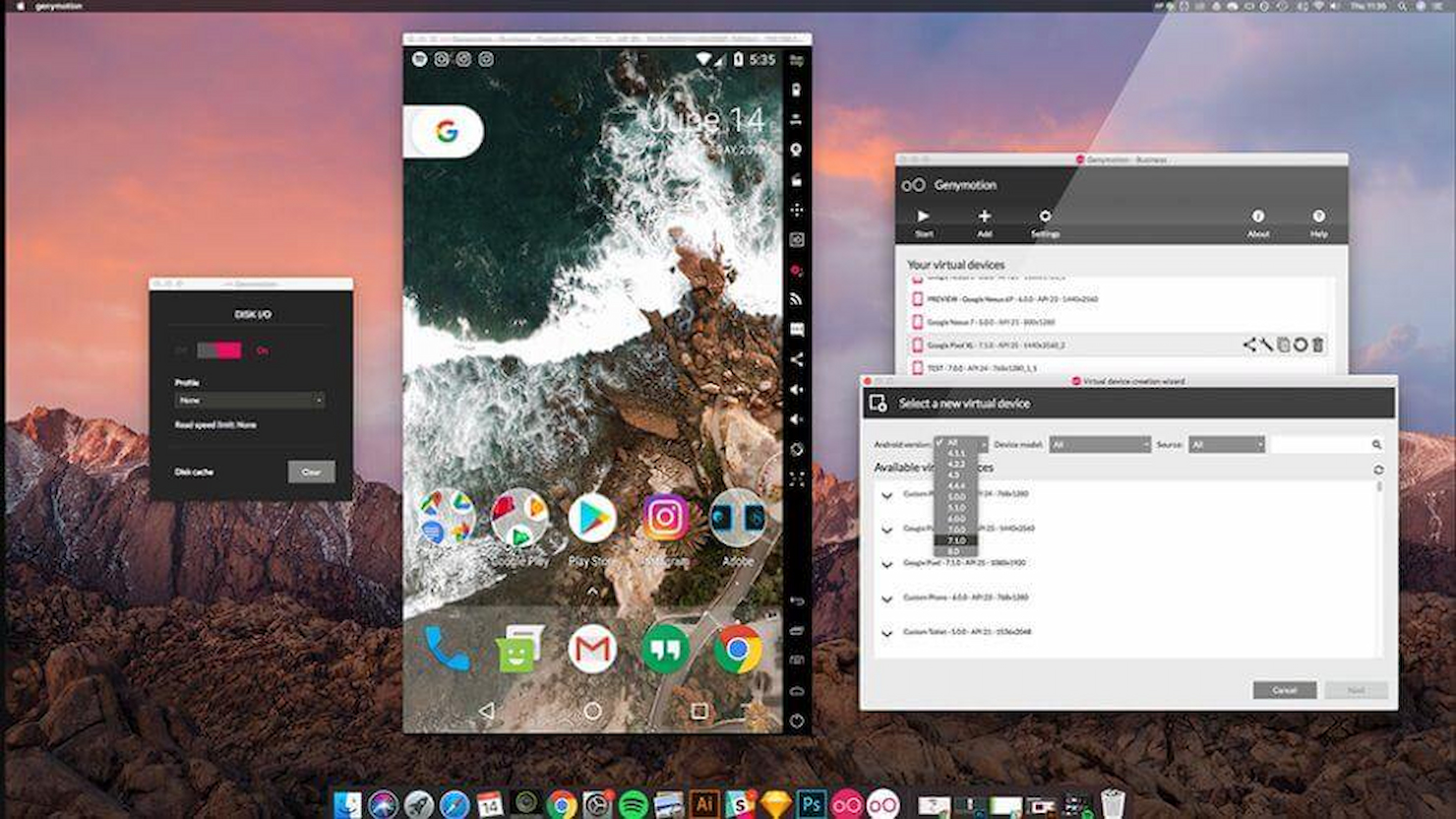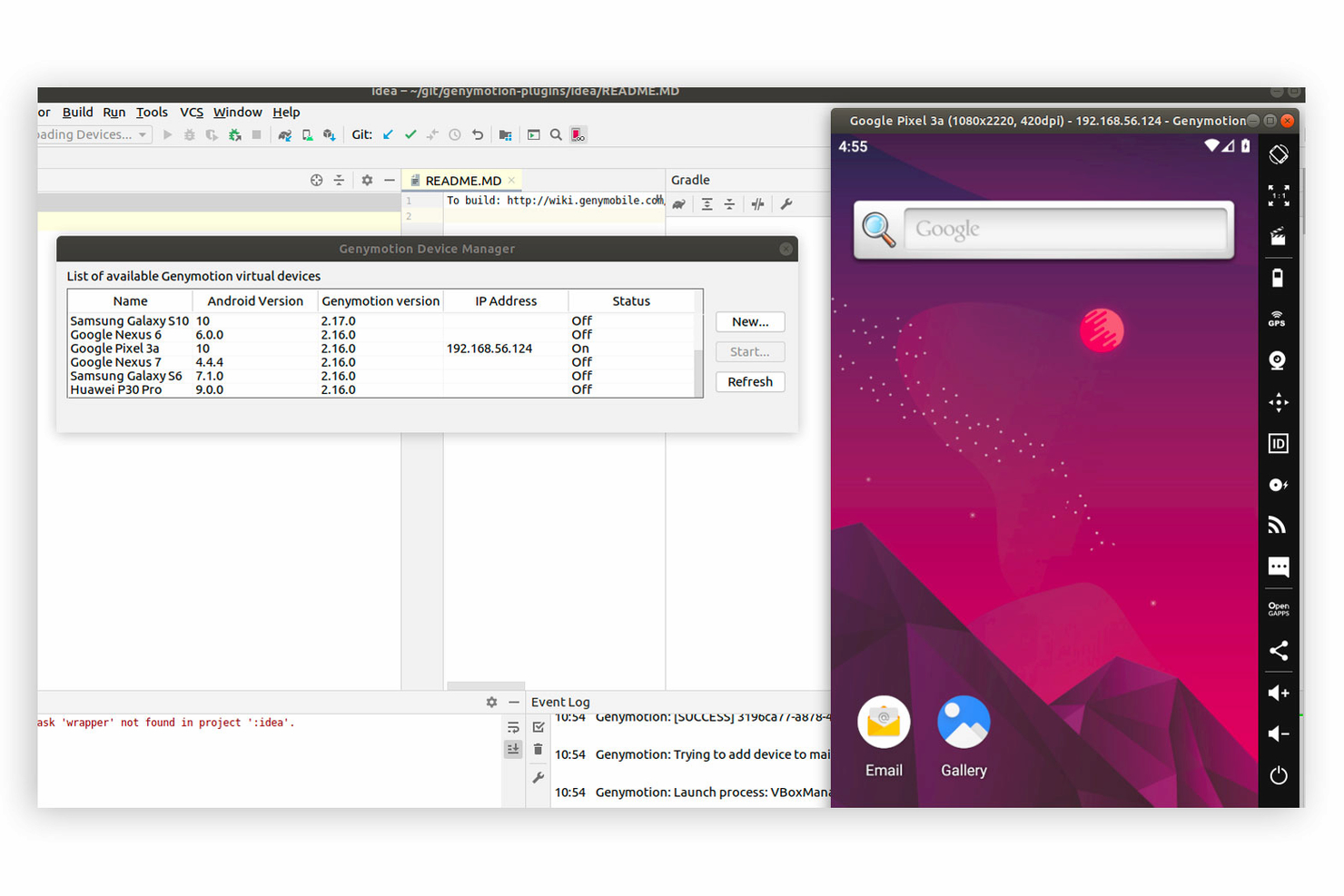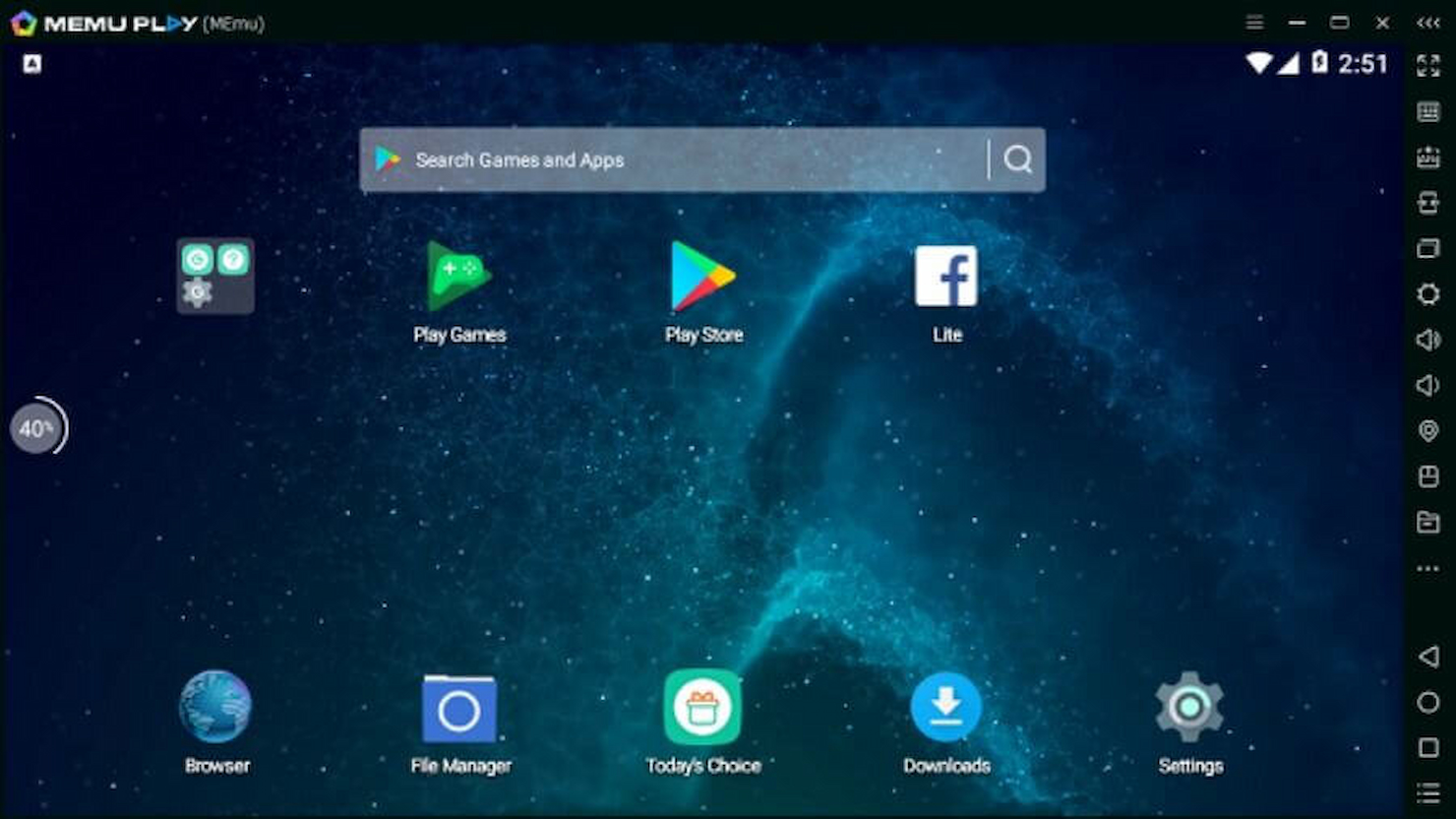10 Best Android Emulators For PCs Shortlist
Here's my pick of the 10 best software from the 17 tools reviewed.
Our one-on-one guidance will help you find the perfect fit.
With so many different android emulators available, figuring out which is right for you is tough. You know you want to ensure app compatibility and functionality across a wide range of Android versions but need to figure out which tool is best. I've got you! In this post I'll help make your choice easy, sharing my personal experiences using dozens of different emulation tools with various teams and projects, with my picks of the best android emulators.
What Are Android Emulators?
Android emulators are software that replicate the Android operating system on other operating systems like Windows, macOS, or Linux. They create a virtual environment, simulating Android devices such as smartphones and tablets on a computer. These emulators allow users and developers to install and run Android apps and interact with them as if they were using a real Android device.
The benefits and uses of Android emulators include enabling developers to test and debug their Android applications efficiently across various Android versions and device specifications without needing physical devices. They are cost-effective, as they reduce the need for multiple testing devices. For users, emulators provide a way to run Android applications on a PC, enhancing accessibility and convenience. They also offer a safe environment to test new apps or app updates before deploying them to real devices.
Best Android Emulator For PCs Reviews
Below, I’ve outlined each of the top Android emulators for PCs that made it onto my shortlist. I’ve included each platform’s best use case, pricing information, and a screenshot of its interface.
ARChon is not some big shot Android emulator, nor it has a huge fan following, it’s more of a fix to run Android apps on Chrome OS.
It started out when Google brought support for two or three Android apps on Google Chrome Web Browser. Following which, a GitHub developer took it a little notch further and released ARChon to run all Android apps on Chrome.
The ARChon Android O emulator is not suited for hardcore gaming, but it is excellent for using a productivity app due to its easy access.
Why use ARChons?
- Compatible with OS X, Linux and Windows
- Integrated into Chrome
- No troublesome installation
- Good for productivity apps
LDPlayer is the second most popular emulator in the world. It’s South East Asia’s best and the fastest android emulator within the gaming market. LDPlayer allows players to run their mobile games and app on PC for free. The inbuilt store (named LDStore) carries multiple android apps and games.
One of the most significant features is its flexibility, even for a low-end device. It doesn’t take much from the storage. LDPlayer is great to play heavier games as well, players can run them smoothly on their computers as it comes with adjustable settings no matter what type of computer you are using.
The advanced features like the keyboard mapping and keyboard macros make controls way easier, while the multi-instance sync like features are helping players to enhance their gaming by creating several instances for the same game.
This emulator supports multi-languages, so it doesn’t matter where you come from because LDPlayer will guide you with the easiest instructions.
Why use LDPlayer?
- Fast and light emulator with multi-language support
- Adjustable settings and more advanced settings for any using device
- Multiple instances can be created for the same device for the same game
Remix OS Player is an Android emulator that allows users to test applications and play games on Windows devices. It’s one of few emulators that are compatible with nearly all Google Play Store games and applications.
The platform provides a desktop version of Android designed to function like a normal operating system. It features many desktop elements familiar to Windows users, including a start menu, system tray, and taskbar, making the emulator highly intuitive. Users can also run multiple applications in different resizable windows, enabling you to switch between programs easily. Windows users can download Remix OS Player for free.
Why use Remix OS Player?
- Compatible with nearly all Android applications and games,
- Custom key mapping
- Easy installation and simple user interface
BlueStacks Android emulator is the oldest and the most popular Android emulator in the mobile gaming market. It’s easy to install, run, and play games on. BlueStacks comes with a library of 2 million+ Android games and apps, fastest boot times, great features (keymapping, game controls, Multi-Instance Sync, among others), and enhancements offered with less to no lag. In addition, the emulator keeps getting frequent product updates to address any issues that gamers experience, making it popular among the community.
If we look specifically at BlueStacks 5, it’s the fastest and lightest version of the app player yet. It claims to consume up to 50% less RAM, has introduced some new features like performance modes & trim memory (to help further reduce the memory usage). It currently supports Android 9 (Pie).
The emulator recently introduced BlueStacks 10, the mobile cloud for Android games. Android apps can be streamed directly on your PC, eliminating the need for expensive hardware.
Why use BlueStacks?
- Easy to set up with no technical knowledge required
- Multiple accounts support
- Latest Android version
- Can be used for Android O or Android Nougat
Just like other Android gaming emulators out there, KoPlayer focuses on delivering lag-free gaming experience with a lightweight software.
As KoPlayer is free of cost yet you might see few ads here and there. The app player is easy to install and navigate through the apps. It also supports keyboard mapping and gamepad emulation.
The downside of this Android emulator is that it sometimes freezes out of the blue. Also, the player is a little buggy and makes it difficult for the user to uninstall the Android O emulator.
Why use KoPlayer?
- Windows and Mac OS compatible
- Simple UI
- Set up any Android device
- Easy to set up
Nox Player (sometimes called Nox App Player) especially targets Android gamers. Although the emulator works perfectly fine for other Android apps and enjoying the whole Android experience, it is best suited for playing massive games like PUBG or Justice League. The best part of Nox Emulator is that it’s absolutely free with no sponsored ads at all.
The Nox Player allows you to map the keys of Keyboard, Mouse, and Gamepad. You can even assign keyboard keys for gestures, for instance, mapping shortcut for swiping right.
Also, you can specify the CPU and RAM usage in the settings option to get the best gaming results. If rooting Android is your focus, Nox Player makes it easy to root the virtual device under one minute.
The only problem with Nox is that it puts a lot of load on the system. Thus, you can’t use tons of other apps. Another thing is it is based on Android 5 Lollipop which might be a concern for you.
Why use Nox Player?
- Multiple windows on the single device
- Mapping shortcuts on controllers
- Easy to root
- Can be used for Android O or Android Nougat
Bliss OS is a little different from the above emulators. Where ‘Android Emulators’ emulate Android on your Windows PC, Bliss OS, on the other hand, is Android itself and needs to be installed as a separate OS.
As for its installation, you could use a Virtual Box or you can create a bootable USB drive and install the Bliss OS ROM on the external storage.
Now, installing Bliss OS or any other Android x86-based projects is always better if you are looking for the exact Android experience on your PC. Not to mention the fact is Bliss OS is open source and doesn’t encompass ads or any Android emulator clutter.
Why use Bliss OS?
- Open-source and ad-free
- Beta version running on Android 9 Pie
- Supports Substratum Theme engine
Official Android IDE with a visual layout editor, APK Analyzer, and fast emulation
Android Studio is a development IDE (integrated development environment) from Google itself and especially caters to developers. It basically comes with a bunch of tools and plugins to help developers build and test their apps.
Android Studio has a built-in emulator but packs fewer features in comparison to tools like Genymotion. The emulator is unquestionably not for general usage and playing heavy games. Android Studio is tough to set up but simultaneously favorite of many developers.
Key features include a visual layout editor with drag-and-drop simplicity; an APK analyzer to check app sizes; access to ARCore, Google’s supported platform for building augmented reality experiences; and an intelligent code editor with auto-completion tech for code completion for Kotlin, Java, and C/C++ languages.
Why use Android Studio?
- Compatible with Windows, Mac, Linux, and Chrome
- Google’s official emulator
- Regular updates
Large choice of widgets & sensors that can be manipulated to simulate any real-life situation
Genymotion is not your casual Android emulator; it is only targeted at developers. The Android simulator lets you test apps on a variety of virtual devices with different versions of Android. The emulator is compatible with Android SDK and Android Studio. It even works macOS and Linux.
Since Genymotion is inclined towards developers, it is equipped with lots of developer-friendly features. And it might not be the right choice for people looking for Android gaming experience.
Genymotion is compatible with all testing frameworks based on ADB: Appium, Espresso, Robotium, et cetera. Plus, it’s compatible with the most popular Continuous Integration solutions: CircleCI, Bitrise, Terraform, and so on.
Why use Genymotion?
- Runs on PC, Mac OS and Linux
- Supports Android Studio
- Run versions from Android 4.1 to 8.0
MEmu
Android emulation with high-quality graphics via DirectX 3D & OpenGL rendering
MEmu (sometimes called MEmu Player) is relatively a new app player in comparison to the others. Launched in 2015, the MeMu Play, again, is focused on gaming. Regarding the speed, this Android emulator gives similar results as Nox and BlueStacks.
One of the most important features of MeMu Android emulator is its support for both AMD and Nvidia chips. It also supports different Android versions like Android Jelly Bean, Kit Kat, and Lollipop. While MeMu advocates for high-performance gaming, the graphics performance is relatively poor. I saw textures and smoothness missing in comparison to other app players.
MEmu is currently based on Android Lollipop and works top of the class with productivity apps. And if you are looking forward to playing games like Ingress or Pokémon Go, this should be your choice.
Why use MEmu?
- Key Mapping
- Set your virtual location on Google Maps
- Support both AMD and NVidia
- Can be used for Android O or Android Nougat
The Best Android Emulator For PCs Summary
| Tools | Price | |
|---|---|---|
| ARChon | No price details | Website |
| LDPlayer | No price details | Website |
| Remix OS Player | No price details | Website |
| BlueStacks | From $24/month | Website |
| KoPlayer | No price details | Website |
| Nox Player | No price details | Website |
| Bliss OS | No price details | Website |
| Android Studio | Free | Website |
| Genymotion | From $136/year | Website |
| MEmu | No price details | Website |

Compare Software Specs Side by Side
Use our comparison chart to review and evaluate software specs side-by-side.
Compare SoftwareOther Android Emulator To Consider
Selection Criteria For The Best Android Emulators For PCs
There are tons of mobile app testing tools out there, so how did I choose the best Android emulators to add to my list? Here, I’ve summarized the key criteria I took into account while conducting my research:
Key Features
Here are the key features I looked for when picking the best Android emulators for Android testing and gameplay:
- Low RAM usage: I'm looking for tools that don't exhaust your PC resources entirely.
- Google Play Store access: Easy access to the Google Play Store and all the apps within.
- Emulates different Android OSs: Can the tool emulate the newest Android O and popular oldies, like Android Nougat or Android Marshmellow.
- Game and app access: The library of Android apps and games available should be robust.
- Android game development: Access to tools for Android developers looking to test their products.
- Android phone screen adjustment: The app doesn't look goofy when it transforms from phone- to PC-sized screens (black borders, blur, or other clutter-free layouts preferred).
Usability
A clean user interface and easy navigation were important factors I considered with each testing tool. The best emulators aren’t necessarily the ones with the most bells and whistles, but the ones that are easiest to use. So I looked for tools that weren’t too complicated and didn’t require too many custom configurations.
Scope
Is the platform open-source? Is it customizable? Can you run multi-instance emulations? Does it create simulations of the app or gaming experience? Depending on your needs, you might be looking for something more broad or more specific.
Frequently Asked Questions About Android Emulators and App Testing
Android emulators offer a variety of advantages to mobile testers. But to leverage these powerful tools, you need to familiarize yourself with common practices and information.
Why use an Android emulator for PC?
Running Android apps on your PC device allows you to access the Android experience on a larger screen. They’re a great Android testing tool because they allow you to set up a virtual device on your Mac OS or Windows PC. This helps you not only see things more clearly, but also run your testing on the same device you do development on.
In addition to an Android emulator, you may want other mobile device testing tools. This could include iOS emulators or specific gaming emulators.
What's the best way to perform Android app testing?
Android app software testing is a crucial process to ensure the quality and reliability of the application before its release to users. There are several steps involved in performing this testing effectively.
First, the testing team should conduct a thorough review of the app’s requirements and specifications to gain a clear understanding of its functionalities and features. With this knowledge, they can then create a detailed test plan outlining the testing scope, objectives, test cases, and resources required. With their test plan established, it’s time to start testing.
Throughout the testing phase, defects and issues are diligently recorded, and bug reports are generated for the development team to address. Regular communication between testers and developers is essential to resolve any identified problems efficiently.
Once the testing team is satisfied with the app’s stability and performance, the app is ready for deployment to the users. Your team will feel confident that it meets the necessary quality standards. App store, here you come!
Can you automate parts of the Android testing process?
More and more, QA specialists are automating their mobile app testing process or parts of it. Many testing tools have automation features that help you streamline your workflows. You can set up test templates, conditional logic, and other automations. This helps you run tests more smoothly, efficiently, and consistently.
There’s plenty of software that can help you automate your testing process. These include QA automation tools and mobile test automation tools. Even some more general test management software comes with handy automation capabilities.
What are the types of tests you can run on an Android app or game?
The actual testing process involves various techniques such as functional testing, usability testing, performance testing, security testing, and compatibility testing. Here’s a bit more information about each of these testing types:
- Functional testing involves verifying that all app features and functionalities work as intended.
- Usability testing assesses the app’s user-friendliness and overall user experience.
- Performance testing focuses on the app’s responsiveness, speed, and resource consumption under different conditions.
- Security testing aims to identify vulnerabilities and ensure the app is protected against potential threats.
- Compatibility testing ensures the app works seamlessly across various Android devices with different screen sizes, resolutions, and operating system versions.
What is Google Play Testing?
With a vast number of apps available on the Google Play Store, competition among developers is increasingly fierce. To ensure the success of their apps, thorough Google Play testing is essential to detect and resolve technical and user experience issues. Research has shown that low-performing apps suffer from high churn rates, highlighting the importance of releasing fast and bug-free applications.
Google Play testing allows developers to test their games and new releases before going live, offering three testing tracks: internal testing, open testing, and closed testing. Open testing involves a large number of testers, providing valuable feedback that helps identify and fix issues, ensuring the app’s quality before its official release. To become a Google Play tester, users need a Google account and can join early access or beta testing programs to try out new Android apps or features before they are officially launched.
Stay Up On The Latest
These are some of the best Android emulators that you can run on your Windows 10. Before you install any of the above emulators, it is important to note that these emulators are not completely bug-free and may lag from time to time. Also, the performance of these app players would be based on the specification of your PC.
Which Android Emulator do you and your team prefer? Let us know in the comments below, and make sure to subscribe to our newsletter to stay up to date on all the latest insights.



